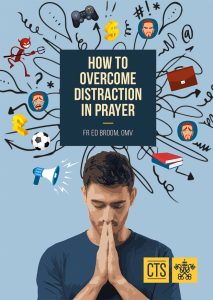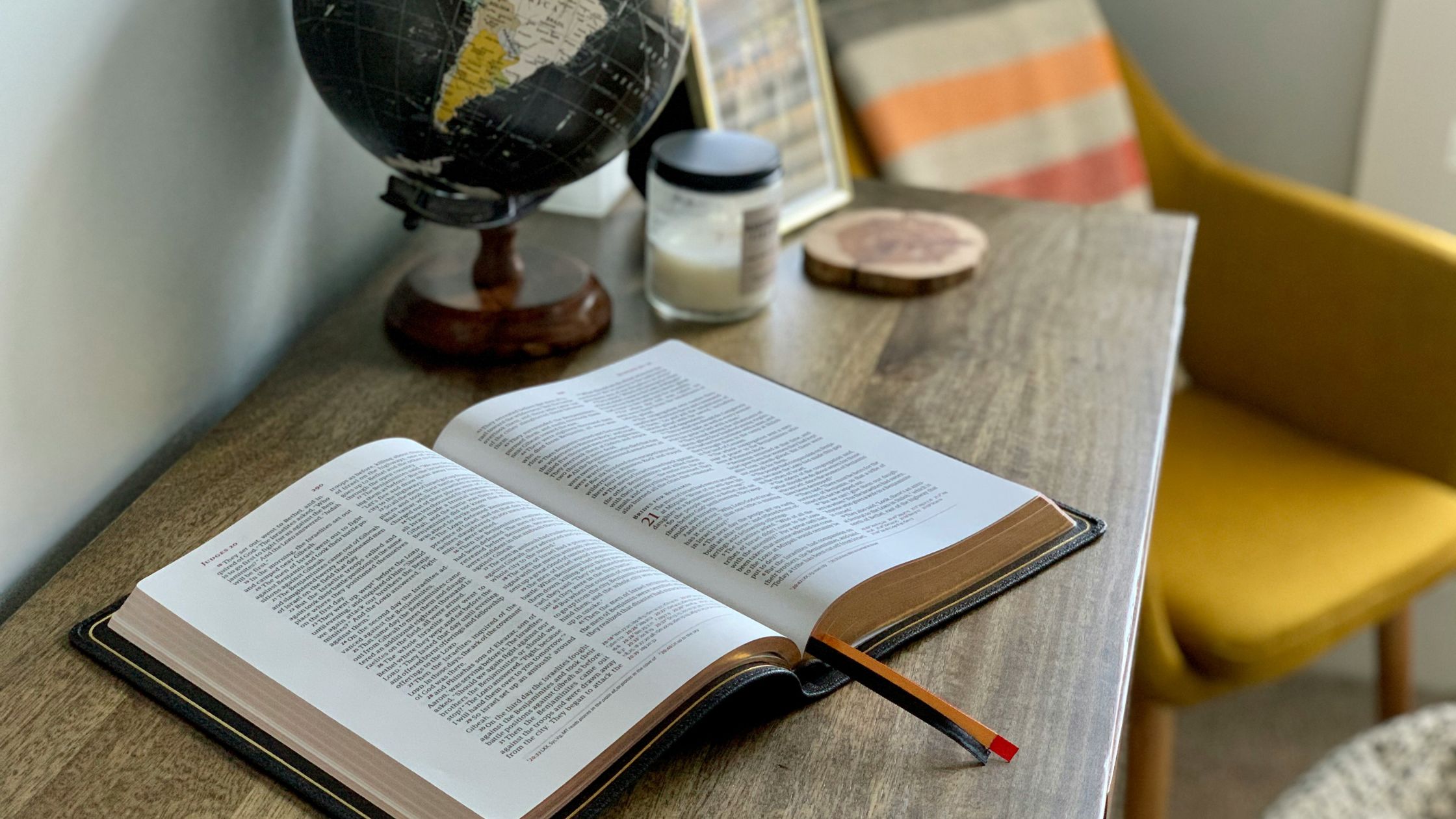This blog is extracted from our book How to Overcome Distraction in Prayer.
Pope Benedict XVI encouraged us to go deeper in our prayer life using a classical method, lectio divina. The late pontiff strongly exhorted followers of Christ to utilise the Word of God as fertile ground for delving into the depths of prayer.
My intention in this short chapter is to set out the steps the Holy Father suggested – and a touch more – to motivate us to never tire in growing in our union with God through a deeper prayer life. Prayer has no limits given that prayer is union with an eternal and infinite God.
These are the steps:
Step 1: Lectio
Open the text you have chosen to meditate upon and read it. However, before reading, ask Our Blessed Mother Mary to pray with you and pray for you. Then, invite the Holy Spirit, known as the Interior Master, to help you in prayer. Now the prayer of the young Samuel can be yours: “Speak, O Lord, for your servant is listening.” (1 S 3:10) What a privilege you have – God wants to speak to your heart!
Step 2: Meditatio
Now apply the use of your memory and understanding to know what God is trying to say to you through this text. Rejoice in the fact that God, right now, has a special message he wants to communicate to you through this reading and meditation. Be open to God; think and pray. Be bold enough to ask the Lord: “Lord God, exactly what is the message you want to communicate to me in my heart and my life right now?” He will hear you and respond.
Step 3: Contemplatio
Now utilise another mental faculty that God has endowed you with in penetrating this text, namely the use of your imagination. We all have an imagination – maybe even a very vivid imagination! However, the imagination is like a double-edged sword: it can be used for good or for evil. The imagination used for good might be for you to imagine walking side by side with Jesus the Good Shepherd (Ps 23; Jn 10:1-18), contemplating the loving gaze of the Good Shepherd peering into your eyes, hearing his gentle and reassuring voice, and experiencing the strong but loving embrace of his arm around your weary shoulders. In summary, your imagination must be trained in the pursuit of good.
Step 4: Oratio
Now you have arrived at the very heart of the essence and purpose of lectio divina, which is oratio, meaning prayer. At any time during your reading of the chosen text, when your mind or imagination sparks an idea that descends to your heart, it is time to open up in prayer. This means that you open up your heart and talk to the Lord in the most simple, trusting and intimate way about what you are thinking, feeling, experiencing. Our Lord is never too busy for you, and he is always ready and willing to listen to you when you decide to talk to him. This conversation with the Lord during your time of prayer can be for a few minutes, half an hour, an hour – whatever length the good Lord inspires in the depths of your heart. Then, continue reading the text until your heart is moved again, or until the time you have allotted for prayer is over.
Step 5: Actio
Authentic prayer must translate into the reality of your life. Doctor of the Church St Teresa of Avila made this acute observation. The acid test to prove our prayer is authentic is how our prayer is manifested in our life. Jesus himself reminds us that we can tell the tree by its fruit. A good tree brings forth good fruit; a bad tree, bad fruit. If we are truly praying with sincerity, honesty, rectitude of intention and love for God, we will begin to see good fruit or virtues growing in our life. Over time, from the tree of our life will blossom and flourish the following: faith, hope, humility, purity, meekness, patience, obedience, self-control, mortification, fortitude and, finally, charity, the Queen of all the virtues according to St Thomas Aquinas, which “binds everything together in perfect harmony” (Col 3:14). Our Lady is our example at all times. In the Annunciation, we see Mary as a contemplative. In the Visitation, after her time of prayer, we see Mary going in haste to bring the fruit of her prayer in service to her cousin Elizabeth. May Our Lady’s example motivate us to also become contemplatives in action.
Step 6: Transformatio
Indeed, if our lectio divina is true and authentic, we will see a gradual transformation in our daily lives. In our prayer life, our aim should be to implement the words of the great apostle St Paul: “It is no longer I who live, but Christ who lives in me” (Ga 2:20). This is the ultimate goal of lectio divina and all authentic prayer: knowing, loving and imitating Jesus Christ, following in his footsteps, and ultimately, transformation into his very essence and being.
What are you waiting for? Why not start your lectio divina today? Choose your text; read it, meditate on it, contemplate it, pray it; live it out and allow God, through the working of the Holy Spirit, to transform you into the saint that he has created you to be.
Deepen your prayer life by identifying distractions and overcoming them – with How to Overcome Distraction in Prayer.
 Prayer can be a struggle. Whether it’s because of busyness at work or school, the chores and clamour of family life, intrusive worries and anxieties, or ever-present digital distractions. Many of us struggle to form a habit of prayer. Fr Ed Broom is here to help Catholics learn to pray. In this book, he teaches us to recognise the causes of distraction in our lives and gives simple, practical advice on how to overcome them so we can speak to God with our whole heart and mind.
Prayer can be a struggle. Whether it’s because of busyness at work or school, the chores and clamour of family life, intrusive worries and anxieties, or ever-present digital distractions. Many of us struggle to form a habit of prayer. Fr Ed Broom is here to help Catholics learn to pray. In this book, he teaches us to recognise the causes of distraction in our lives and gives simple, practical advice on how to overcome them so we can speak to God with our whole heart and mind.
Order How to Overcome Distraction in Prayer today.
